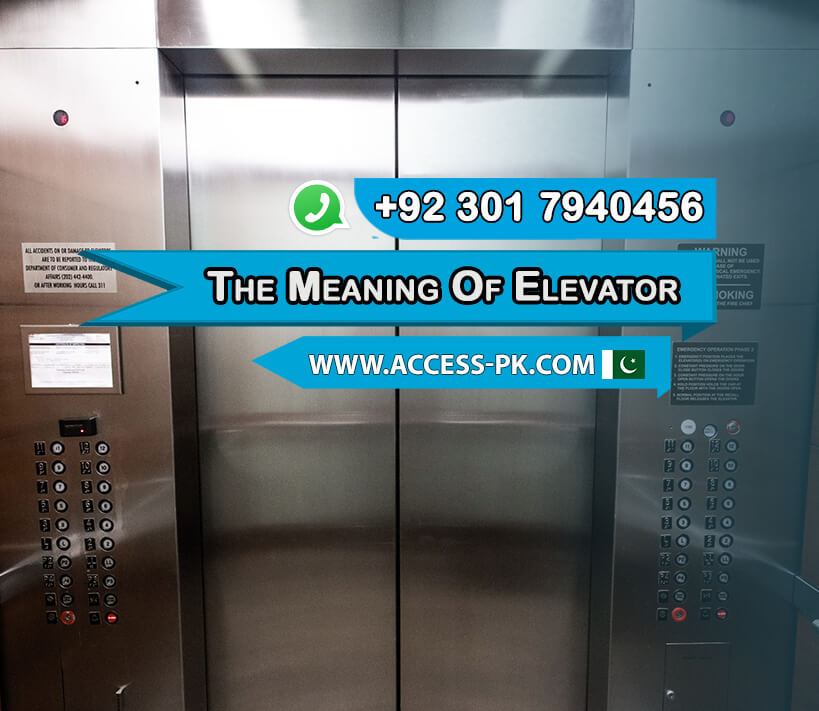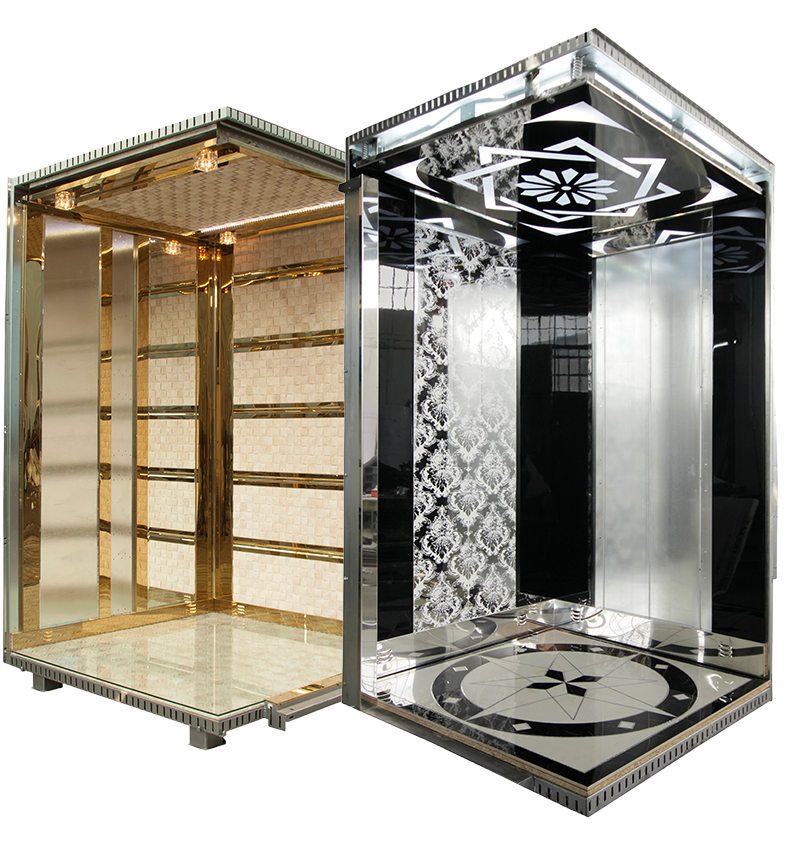The meaning of elevator extends beyond basic transportation. Elevators are pivotal in modern architecture, offering accessibility to individuals with mobility challenges. By integrating various types of elevators, such as passenger, freight, and service elevators, buildings can cater to different needs. For instance, passenger elevators enhance convenience in high-rise buildings, while freight elevators support logistics and heavy cargo. As a result, elevators significantly contribute to the functionality and accessibility of contemporary structures.
Elevators, fundamentally, are mechanical systems designed to transport people and goods between different levels of a building. Access Technologies, owned by Imran Rafi, provides a range of elevator solutions, reflecting the diverse applications of this essential equipment. Essentially, an elevator consists of a cabin or platform that moves vertically along a shaft, guided by rails. It operates using a combination of pulleys, cables, and motors. This simple yet effective design allows elevators to be crucial in both residential and commercial buildings, facilitating easy and efficient movement.
In addition to their primary function, elevators also play a vital role in enhancing safety and efficiency. Transitioning between floors without elevators can be time-consuming and impractical, especially in large buildings. Elevators streamline this process, making it quicker and more efficient. Furthermore, they comply with safety standards and regulations, ensuring reliable operation. Thus, understanding the meaning of elevator highlights its importance in modern infrastructure and daily life, underscoring its impact on convenience and accessibility.
Get Free QuotesUnderstanding the Basic Definition of an Elevator
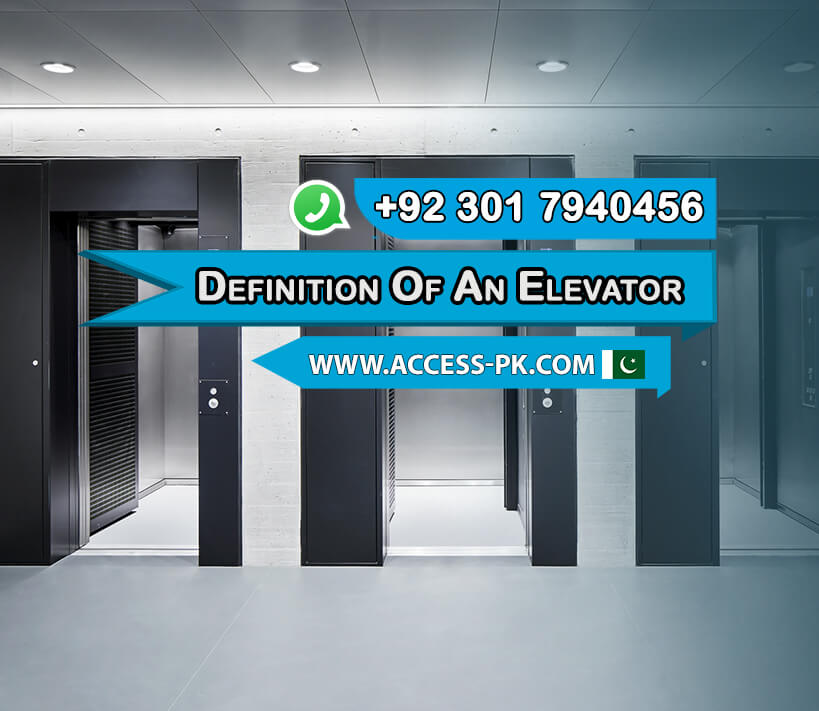
An elevator, in its most fundamental sense, is a mechanical device designed to transport individuals or goods between different levels of a building. The meaning of elevator encompasses a sophisticated system that moves a cabin or platform vertically along a predefined path. This path is typically guided by rails within a shaft. The elevator operates through a combination of pulleys, cables, and motors, ensuring smooth and efficient vertical movement. Access Technologies, owned by Imran Rafi, exemplifies the diverse applications of elevators, offering solutions that cater to both residential and commercial needs. The design of an elevator is straightforward yet highly effective; it includes key components such as the cabin, the shaft, the control system, and the drive mechanism. Understanding the meaning of elevator involves recognizing its integral role in modern architecture, facilitating ease of movement in high-rise buildings and large complexes.
What is an Elevator?
The meaning of elevator refers to a device that moves people or goods vertically within a building. At its core, an elevator consists of a cabin that travels along a set of rails within a shaft. This movement is powered by an electric motor that operates through a system of pulleys and cables. Elevators are designed to provide a smooth and efficient way to transition between different floors, making them essential in both residential and commercial settings. They improve accessibility, especially in buildings with multiple stories, where stairs alone would be inadequate for easy movement. Elevators are engineered for safety, featuring mechanisms to prevent accidents and ensure reliable operation.
Core Functions of Elevators
Elevators serve several key functions that enhance the usability and efficiency of buildings. Firstly, they provide a convenient means of vertical transportation, allowing people to move easily between different levels. This is particularly important in high-rise buildings and commercial spaces where multiple floors are involved. Additionally, elevators facilitate the movement of goods and freight, which is crucial for businesses and warehouses. They also play a significant role in improving accessibility for individuals with mobility challenges, making buildings more inclusive. By incorporating advanced technology and adhering to safety standards, elevators ensure smooth and reliable operation, contributing to the overall functionality of modern architecture.
Types of Elevator Systems
Understanding the meaning of elevator involves recognizing the various types of elevator systems available. Passenger elevators are designed for transporting people and are commonly found in residential and commercial buildings. Freight elevators, on the other hand, are built to handle heavy loads and are typically used in warehouses or industrial settings. Service elevators are another type, designed to move goods and personnel in service areas of buildings. Additionally, there are specialized elevators such as dumbwaiters, which are used for smaller items like food and documents. Each type of elevator system is engineered to meet specific needs, ensuring that buildings can accommodate different functions and requirements efficiently.
Get Free QuotesTypes of Elevators: From Passenger to Freight

Elevators come in various types, each designed to fulfill specific needs and applications. The most common type is the passenger elevator, which is found in residential and commercial buildings. These elevators are designed to transport people between different floors efficiently. They are equipped with features such as spacious cabins, user-friendly controls, and safety mechanisms to ensure a smooth and secure ride. The meaning of elevator in this context highlights its role in enhancing convenience and accessibility within multi-story structures. Passenger elevators are essential in high-rise buildings where stairs alone would be impractical for daily use.
| Elevator Type | Cost |
|---|---|
| Stair lifts | 810000 to 1770000/Pkr |
| Home Lifts | 1200000 to 2000000/Pkr |
| DIY Food Elevator | 2230000 to 3350000/Pkr |
| Two-Story Home Lift | 7020000 to 8420000/Pkr |
| Hospital Bed Elevators | 4150000 to 8300000/Pkr |
| Panoramic Elevator | 3180000 to 3870000/Pkr |
In contrast, freight elevators serve a different purpose. These elevators are built to handle heavy loads, making them ideal for industrial settings, warehouses, and large commercial spaces. They typically have robust structures and larger cabins to accommodate bulky items and equipment. Freight elevators prioritize durability and load capacity, distinguishing them from passenger elevators. The meaning of elevator extends to this type as well, reflecting its critical function in supporting logistics and operations within various industries. Each type of elevator is engineered to meet specific demands, ensuring functionality and efficiency across diverse applications.
Get Free QuotesElevators By Access Technologies
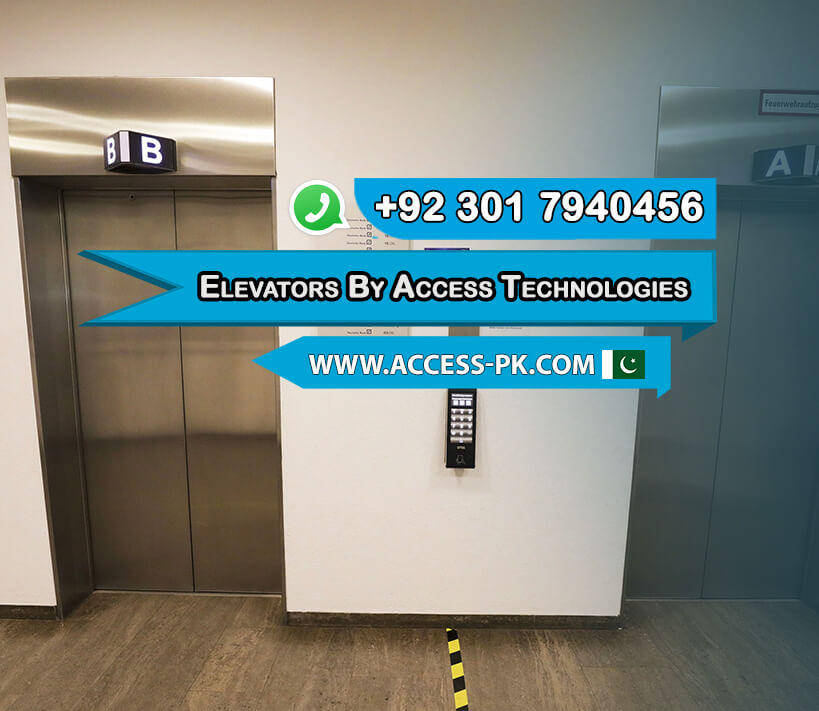
Access Technologies, owned by Imran Rafi, offers a diverse range of elevator solutions tailored to meet varying needs. Their selection includes state-of-the-art passenger elevators designed for both residential and commercial buildings. These elevators feature advanced technology for smooth and efficient vertical transportation, ensuring comfort and convenience. The meaning of elevator in the context of Access Technologies highlights their commitment to providing high-quality solutions that enhance the functionality and accessibility of modern buildings. Their passenger elevators are designed with a focus on safety, reliability, and aesthetic appeal, making them suitable for various architectural styles.
In addition to passenger elevators, Access Technologies provides specialized solutions such as freight and service elevators. These elevators are engineered to handle heavy loads and support logistics operations in industrial and commercial environments. The meaning of elevator extends to these applications as well, underscoring their role in facilitating efficient movement of goods and materials. By offering a comprehensive range of elevator systems, Access Technologies ensures that their clients have access to the right solutions for their specific requirements, enhancing both the functionality and efficiency of their buildings.
Get Free QuotesCommon Uses of Elevators in Modern Buildings
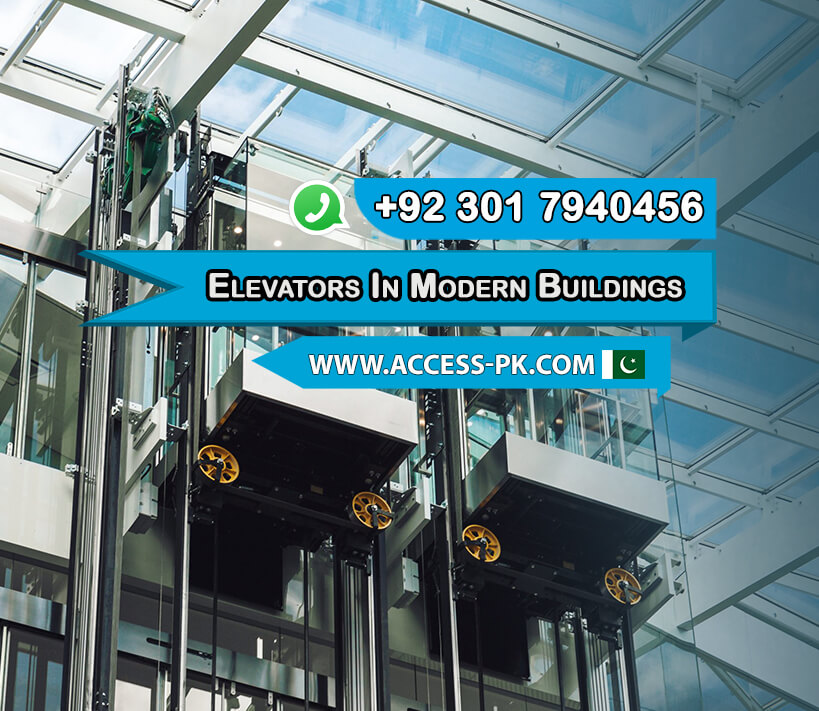
Elevators play a crucial role in modern buildings, serving a variety of functions that enhance both accessibility and efficiency. Understanding the meaning of elevator involves recognizing its diverse applications across different types of structures. In residential buildings, elevators provide a convenient means of moving between floors, making multi-story living more accessible, especially for the elderly and those with mobility challenges. In commercial buildings, elevators facilitate the movement of people and goods, contributing to operational efficiency and accessibility. Additionally, elevators are integral to high-rise buildings, where they ensure that vertical transportation is seamless and efficient. They also support specialized functions, such as moving large equipment in industrial settings or delivering food and documents in service areas. The versatility of elevators makes them indispensable in contemporary architecture, reflecting their importance in improving daily life and operational processes.
Passenger Transport
Passenger elevators are essential for transporting people between different floors in residential, commercial, and public buildings. The meaning of elevator in this context highlights its role in improving accessibility and convenience. These elevators are designed with features such as comfortable cabins, user-friendly controls, and safety mechanisms to ensure a smooth and secure ride. They are particularly important in high-rise buildings, where stairs alone would be impractical. Passenger elevators enhance daily living by providing an efficient means of vertical transportation, making multi-story buildings more accessible and user-friendly.
Freight and Cargo Handling
Freight elevators are specifically designed for moving heavy loads and goods within industrial, commercial, and warehouse settings. Understanding the meaning of elevator includes recognizing these robust systems, which prioritize durability and load capacity. Freight elevators typically feature larger cabins and stronger construction to handle bulky items such as equipment, materials, and supplies. They play a crucial role in supporting logistics and operations, ensuring that goods are transported efficiently between floors. By accommodating heavy and oversized items, freight elevators contribute to the overall functionality and efficiency of various industries.
Specialty Elevators
Specialty elevators cater to unique needs and applications beyond standard passenger and freight systems. The meaning of elevator in this context encompasses a range of specialized designs, including dumbwaiters, which are used for transporting small items like food and documents. Additionally, vertical platform lifts are designed to provide accessibility for individuals with mobility impairments, making buildings more inclusive. Each type of specialty elevator is engineered to meet specific requirements, offering tailored solutions for diverse scenarios. By addressing unique needs, specialty elevators enhance the versatility and functionality of modern buildings, reflecting the broader meaning of elevator in various practical applications.
Get Free Quotes

